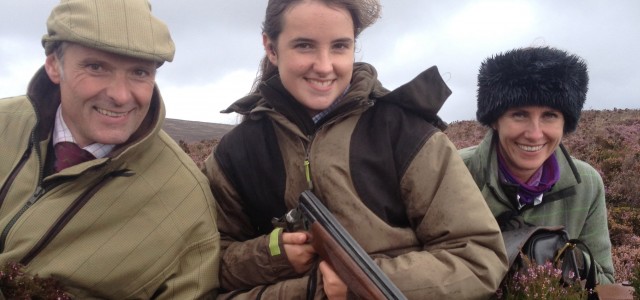
ON TARGET…
With the aim of promoting well-managed game shooting and countryside conservation, Duncan Thomas explains to Jan Woolley about the role he plays within the Ribble Valley and beyond. Photography: Sarah Valentine
The British Association for Shooting and Conservation (BASC) represents the shooting interests of around 135,000 members throughout the UK. As a national body for sporting shooting, the strategic objects of BASC is to promote a unified voice in favour of shooting and conservation, using best practice and high standards. With the Duke of Edinburgh as its patron, the work of BASC is diverse but its key aim is to highlight the advantages of game shooting in a well-managed environment. BASC also introduces youngsters to the sport and gives a unique insight into how the conservation of our countryside and the preservation of our wildlife is inextricably linked to well-managed shoots.
Duncan Thomas is the North West Regional Officer representing 12,000 northern-based BASC members, who come from a diverse range of shooting interests from grouse and game shooting on the moors to wildfowlers: “From the moors right down to the marsh – it’s all very interesting,” says the former Lancashire police riot officer, who has worked in Kosovo and Serbia. He also worked for eight years as a Lancashire Police Wildlife Officer, giving him the perfect qualifications for the job he does today with BASC.
A typical day for Duncan can include dealing with BASC membership enquiries, assisting members with fire arms applications or it may see him taking part in various shoots with his pack of 10 gun dogs, personally engaging with BASC members.
At this time of year game shooting is in full swing and ever-changing. While the ‘glorious grouse’ is coming to an end this leads on to pheasant and partridge shooting.
We are also entering the season when suitable female deer are culled, which provide incredible venison.
“Over the next few months the seasons will be changing,” explains Duncan, who is keen to point out that while many people find recreational game shooting controversial, they are often not aware of the advantages it brings to the economy and to the ‘natural order’ of the countryside.
For example, deer stalking, which is carefully managed, is necessary to protect crops and forestry – as well as the deer herds, as they are prolific breeders and if numbers go unchecked they become prey to starvation and disease.
“Most of the Ribble Valley is managed for shooting in one way or another and all of the shoots provide an incredible range of wildlife habitat that supports a diverse range of species.
“Shooting itself generates £2billion within the UK economy and creates around 74,000 full time jobs. For example the parents of most of the children at the local school at Abbeystead are gamekeepers. If it wasn’t for shooting the school wouldn’t be there.
“Game shooting also provides us with an incredible end product – game and venison is a healthy and sustainable food source. I would much rather eat grouse or pheasant shot in Bowland than chicken reared in a battery farm.”
With £250 million spent by the shooting community every year on conservation related projects, managing the moorlands and marshes for game shooting involves many tasks including planting suitable habitat, ponds are dug and the controlled burning of heather takes place each season.
Gamekeepers are responsible for controlling predators too like fox, stoats, weasel, mink, rats, crows and magpies – all of which have a significant impact on game birds and our native wildlife.
This has been particularly controversial in Bowland where the hen harrier, also a predator, is now an endangered species.
However, as a vital part of BASC’s work, Duncan tries to ensure that endangered birds like the hen harrier are protected.
“For example on the Croasdale shoot on United Utilities land, we saw two complete nests of hen harriers fledged. In fact the shoot captain was there when the young were fitted with trackers.
“The heather moorlands of the Ribble Valley support all species and all benefit from game keeping.”
Duncan enjoys his work with BASC, it is varied and keeps him constantly busy: “It is absolutely brilliant, it is so interesting. It’s challenging and the workload is frenetic – it’s certainly not a nine to five job.”
One of the most enjoyable aspects of Duncan’s work is introducing youngsters to shooting through BASC’s Young Shot Ambassador Project, which involves youngsters, aged around 15, identifying projects that can introduce responsible shooting to their own social or peer groups.
“This often introduces kids that would never normally have the opportunity to shoot,” says Duncan.
Recently a Blackburn school was invited to go on a clay shoot as part of the project: “The headmaster was reluctant to allow it thinking guns and kids don’t mix, but by the end of the session we couldn’t get him off the clay stand!
“Shooting with clays or game teaches youngsters respect, safety, etiquette and manners. It also gives them the ability to engage with people from a vast range of social backgrounds.”
www.basc.org.uk
